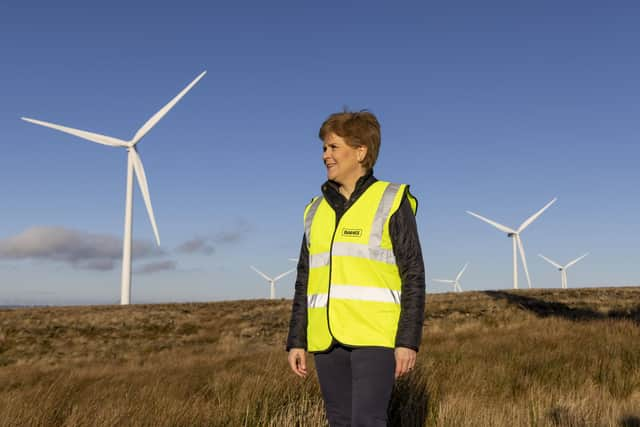Jeremy Hunt autumn statement: Wind and solar farms to hand over excess profits under sharp windfall tax rise
The windfall tax on renewables, biomass and nuclear power generators will be set at 45 per cent, Chancellor Jeremy Hunt announced. But gas and coal generators will be exempt.
Meanwhile the UK Government also upped the windfall tax on oil giants such as Shell and BP who drill in the North Sea from 25 per cent to 35 per cent.
Advertisement
Hide AdAdvertisement
Hide AdThe two taxes are significantly different. The oil and gas companies will be allowed to claim back most of their extra tax if they invest in the UK, but there is no way for the wind farms to claw back any of their windfall tax.


However, the 35 per cent will be levied on all of the oil and gas companies’ North Sea profits, while wind farms and other renewables will only be charged 45 per cent on anything above £75 per megawatt hour (MWh) of electricity they use.
“This windfall tax on low carbon power risks deterring investment, at a time when the Chancellor should be incentivising clean energy,” said Dan McGrail, the chief executive of trade body Renewable UK.
“Unlike in oil and gas, under this levy, companies which are making significant investments in renewables will get no tax relief and will be hit by a higher windfall rate.”
Mr Hunt hopes the taxes can raise around £14 billion for the Treasury between them next year.
“I have no objection to windfall taxes if they are genuinely about windfall profits caused by unexpected increases in energy prices,” he told the Commons. “But any such tax should be temporary, not deter investment and recognise the cyclical nature of many energy businesses.”
He added: “The structure of our energy market also creates windfall profits for low-carbon electricity generation.”
Many older wind farms and efficient gas-firing power plants have been benefiting from historically high energy prices.
Gas prices have soared around the world, and the price of electricity in Britain is largely decided by how expensive gas is.
Comments
Want to join the conversation? Please or to comment on this article.